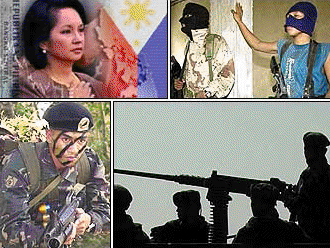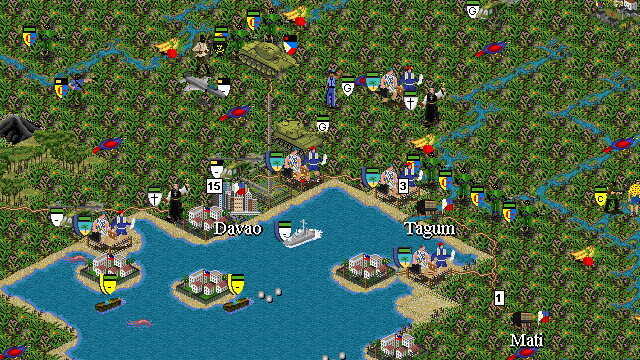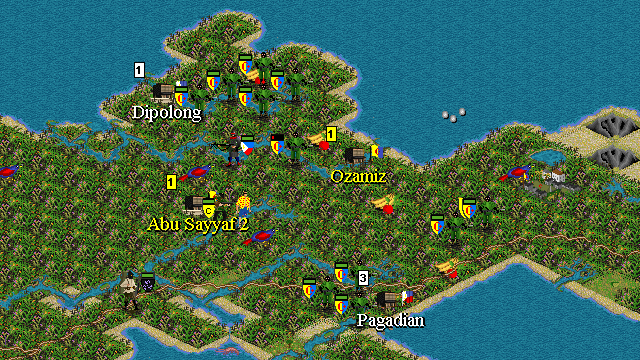Abu Sayyaf
A scenario for Civilization II: Multiplayer Gold Edition by JAPR.
Description
Islam in the Philippines has absorbed indigenous elements, much as has Catholicism. Moros thus make offerings to spirits (diwatas), malevolent or benign, believing that such spirits can and will have an effect on one's health, family, and crops. They also include pre-Islamic customs in ceremonies marking rites of passage--birth, marriage, and death. Moros share the essentials of Islam, but specific practices vary from one Moro group to another. Although Muslim Filipino women are required to stay at the back of the mosque for prayers (out of the sight of men), they are much freer in daily life than are women in many other Islamic societies.
Because of the world resurgence of Islam since World War II, Muslims in the Philippines have a stronger sense of their unity as a religious community than they had in the past. Since the early 1970s, more Muslim teachers have visited the nation and more Philippine Muslims have gone abroad--either on the hajj or on scholarships--to Islamic centers than ever before. They have returned revitalized in their faith and determined to strengthen the ties of their fellow Moros with the international Islamic community. As a result, Muslims have built many new mosques and religious schools, where students (male and female) learn the basic rituals and principles of Islam and learn to read the Quran in Arabic. A number of Muslim institutions of higher learning, such as the Jamiatul Philippine al-Islamia in Marawi, also offer advanced courses in Islamic studies.
Divisions along generational lines have emerged among Moros since the 1960s. Many young Muslims, dissatisfied with the old leaders, asserted that datu and sultans were unnecessary in modern Islamic society. Among themselves, these young reformers were divided between moderates, working within the system for their political goals, and militants, engaging in guerrilla-style warfare. To some degree, the government managed to isolate the militants, but Muslim reformers, whether moderates or militants, were united in their strong religious adherence. This bond was significant, because the Moros felt threatened by the continued expansion of Christians into southern Mindanao and by the prolonged presence of Philippine army troops in their homeland.
Screenshots
Downloads
Scenario Files (587 kB)


